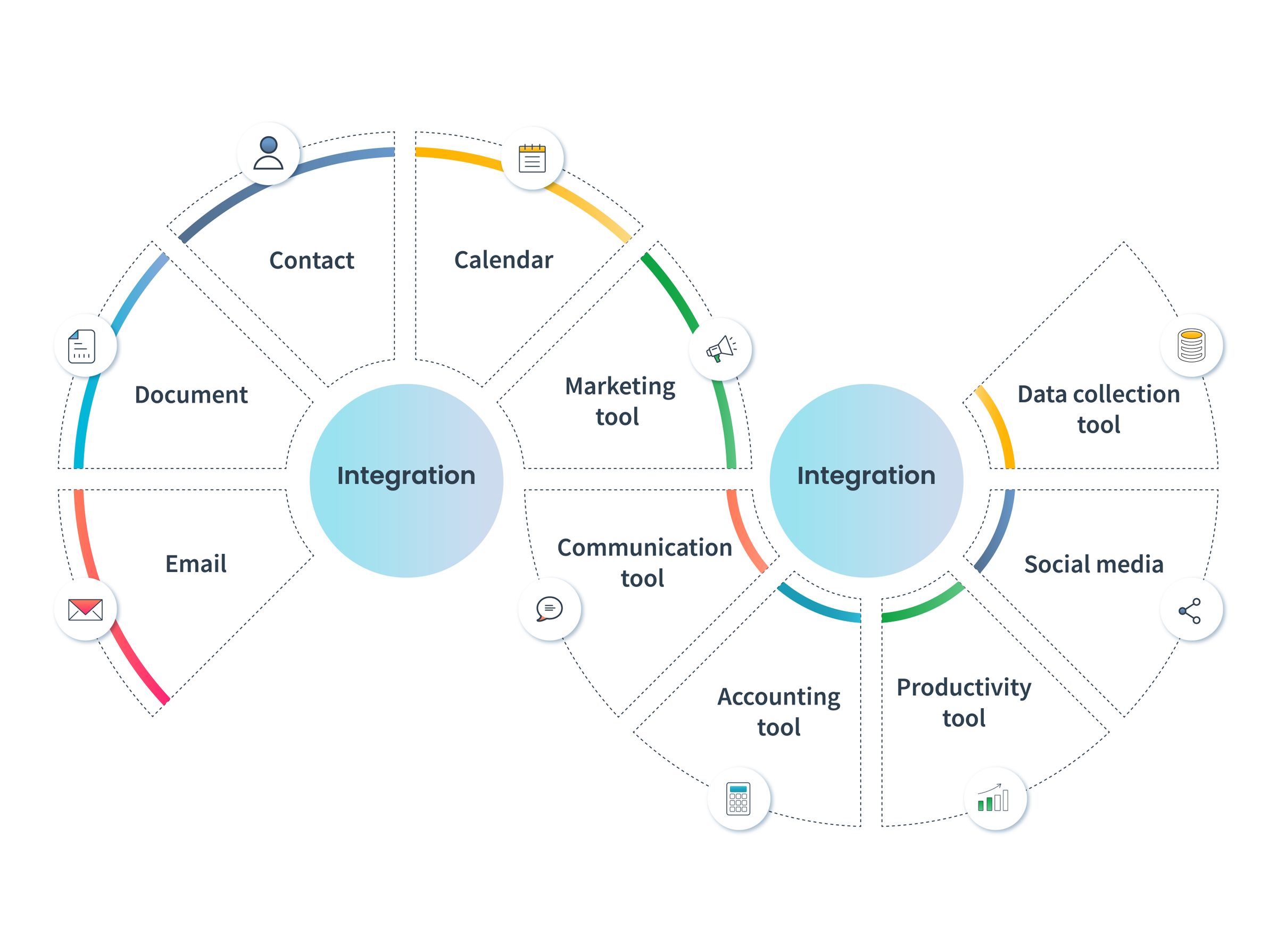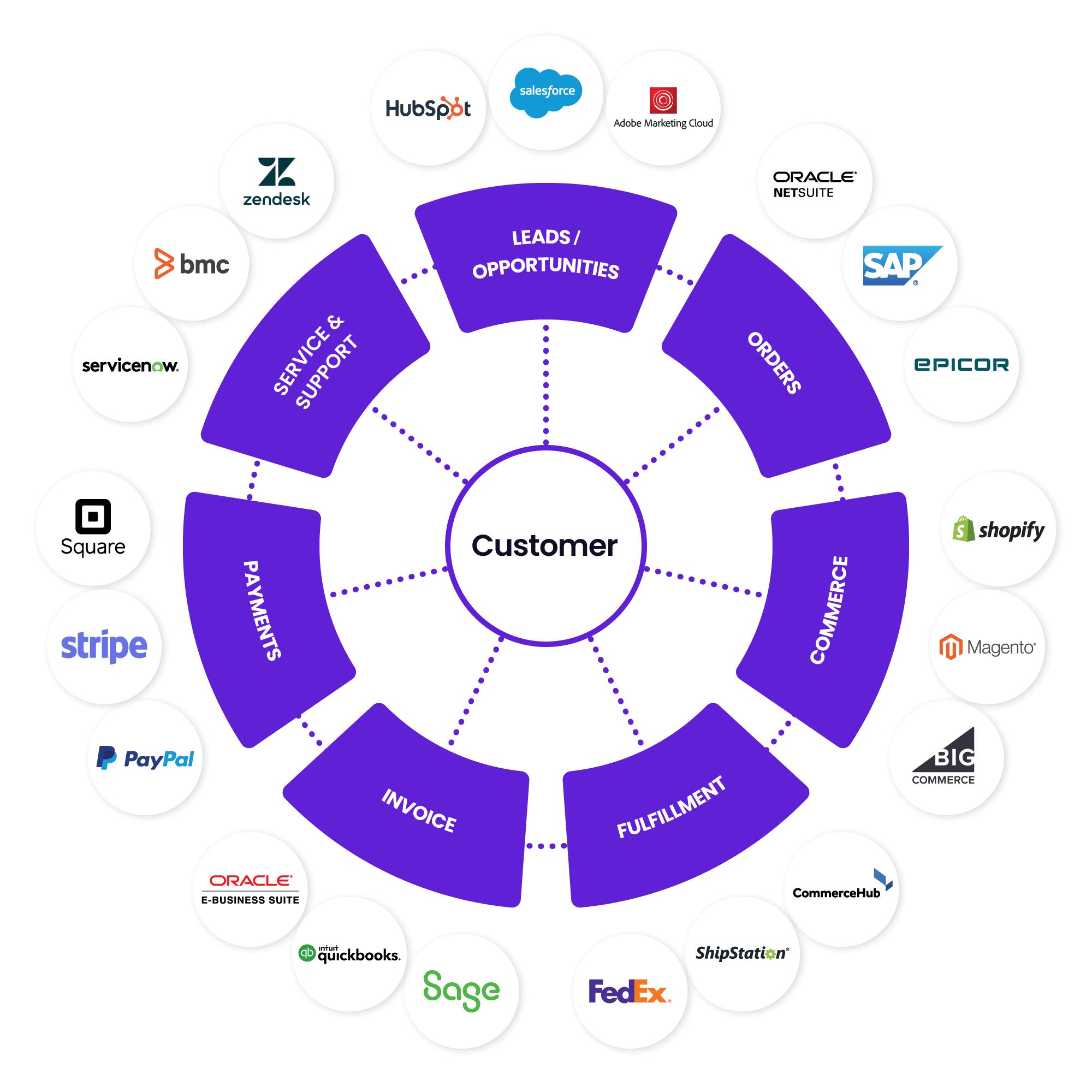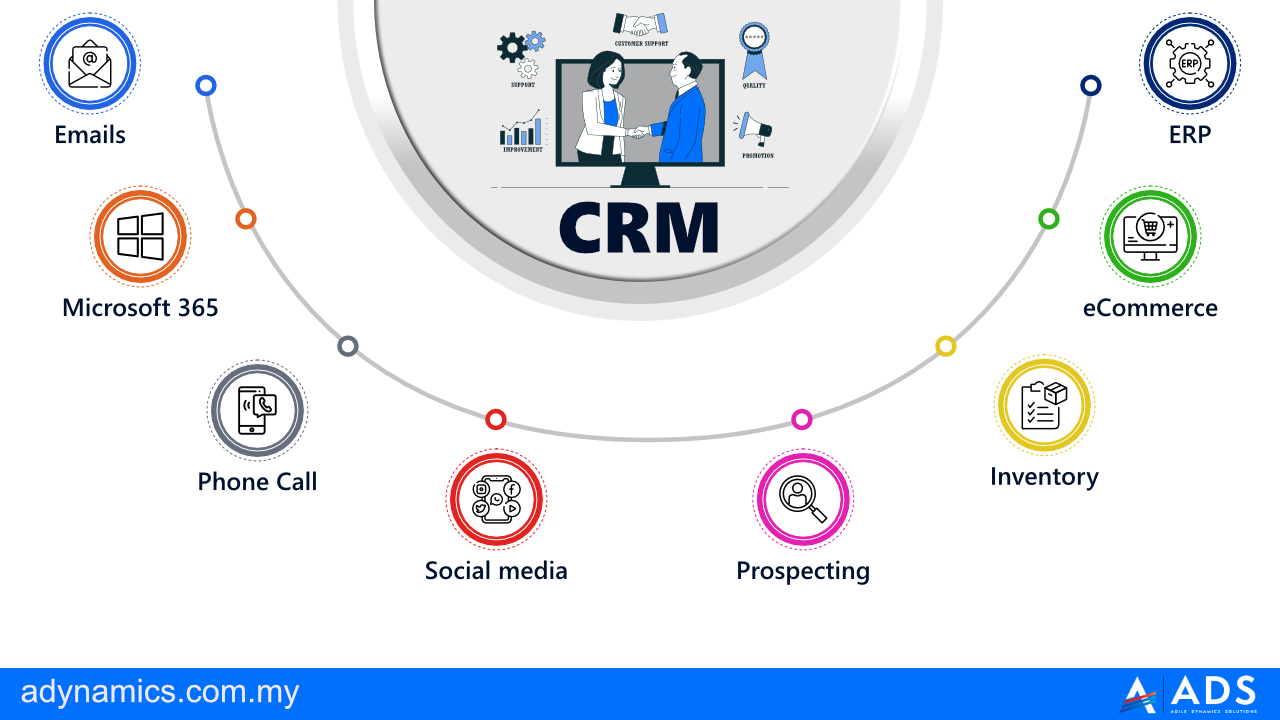Integrated CRM has emerged as a game-changer in the realm of customer relationship management, seamlessly unifying critical business processes to optimize interactions and drive growth. By consolidating essential functions like sales, marketing, and customer service onto a single platform, integrated CRMs empower businesses with a comprehensive view of their customers, enabling them to deliver personalized experiences and build lasting relationships.
The benefits of integrated CRMs extend far beyond streamlined operations, enhancing collaboration among teams, improving efficiency, and unlocking a wealth of insights to inform strategic decision-making. Moreover, integrated CRMs leverage cutting-edge technologies like AI and machine learning to automate tasks, predict customer behavior, and deliver proactive support.
Integrated CRM Features

Integrated CRMs offer a comprehensive suite of features that streamline business processes, enhance customer interactions, and provide valuable insights into customer behavior. These features include:
Contact Management
- Centralized database for storing and managing customer information, including contact details, demographics, and communication history.
- Ability to segment and filter contacts based on various criteria, allowing for targeted marketing campaigns and personalized interactions.
- Automatic tracking of customer interactions across multiple channels, providing a complete view of customer engagement.
Sales Automation
- Tracking of sales opportunities throughout the pipeline, from lead generation to close.
- Automated workflows that streamline sales processes, such as sending follow-up emails or scheduling appointments.
- Integration with email and calendar tools, allowing for seamless communication and scheduling with prospects and customers.
Marketing Automation
- Creation and execution of targeted marketing campaigns across multiple channels, including email, social media, and paid advertising.
- Tracking of campaign performance and analytics to measure ROI and optimize future campaigns.
- Lead nurturing sequences that automatically engage with prospects and move them through the sales funnel.
Customer Service
- Centralized platform for managing customer inquiries and support requests.
- Automated ticket routing and assignment to ensure timely and efficient resolution.
- Knowledge base and self-service options to empower customers to find answers on their own.
Reporting and Analytics
- Comprehensive reporting and analytics dashboards that provide insights into customer behavior, sales performance, and marketing effectiveness.
- Customizable reports that can be tailored to specific business needs.
- Data visualization tools that make it easy to understand and interpret data.
Benefits of Integrated CRMs
Integrated CRMs offer numerous advantages to businesses, streamlining operations, enhancing collaboration, and boosting efficiency. They provide a centralized platform that consolidates data from various departments, eliminating silos and improving data accessibility.
By integrating CRM with other business systems, such as marketing automation, sales, and customer service, organizations can gain a holistic view of customer interactions. This comprehensive understanding enables businesses to personalize customer experiences, automate workflows, and make data-driven decisions.
Enhanced Collaboration and Efficiency
Integrated CRMs facilitate seamless collaboration between teams, breaking down departmental barriers. Sales, marketing, and customer support teams can access real-time customer data, reducing the need for manual data entry and minimizing errors.
Streamlined communication and automated workflows improve efficiency, freeing up employees to focus on high-value tasks. Automated reminders, task assignments, and notifications ensure that no customer inquiries or opportunities are missed.
Improved Customer Relationships
Integrated CRMs empower businesses to build stronger customer relationships by providing a 360-degree view of customer interactions. By tracking customer preferences, purchase history, and support interactions, businesses can tailor personalized experiences that meet individual customer needs.
Proactive customer outreach, based on real-time data, helps businesses identify potential issues and address customer concerns before they escalate. This proactive approach enhances customer satisfaction and loyalty.
Increased Revenue and ROI
Numerous studies have demonstrated the positive return on investment (ROI) of integrated CRMs. By streamlining operations, improving collaboration, and enhancing customer relationships, businesses can increase revenue and profitability.
For instance, a study by Nucleus Research found that businesses that implemented integrated CRMs experienced an average ROI of 228%, with increased sales, reduced customer churn, and improved customer satisfaction.
Challenges of Implementing Integrated CRMs

Implementing integrated CRMs can bring significant benefits, but it also presents organizations with certain challenges. These include:
- Data Integration:Combining data from multiple systems can be complex and time-consuming, requiring careful planning and data cleansing.
- Process Alignment:Ensuring that all departments and teams are aligned on CRM processes can be challenging, especially in large organizations.
- Resistance to Change:Employees may resist adopting new CRM systems, leading to delays and implementation issues.
- Cost and Resources:Implementing integrated CRMs can be expensive and resource-intensive, requiring significant investment and ongoing maintenance.
Comparison of Integrated CRMs

In the competitive landscape of customer relationship management (CRM), several integrated solutions stand out. Each CRM offers a unique set of features, pricing models, and strengths, catering to specific business needs and industries.
To help you make an informed decision, we’ve compiled a comparative table showcasing the leading integrated CRM solutions, their key features, pricing, and customer reviews.
CRM Comparison Table
| CRM Solution | Key Features | Pricing | Customer Reviews |
|---|---|---|---|
| Salesforce |
|
|
|
| Microsoft Dynamics 365 |
|
|
|
| Zoho CRM |
|
|
|
| HubSpot CRM |
|
|
|
| Freshsales |
|
|
|
Future Trends in Integrated CRMs
Integrated CRMs are poised for significant advancements in the coming years. Emerging technologies such as artificial intelligence (AI) and machine learning (ML) are transforming the way businesses manage customer relationships.
AI and Machine Learning
AI and ML are revolutionizing integrated CRMs by automating tasks, providing personalized experiences, and improving decision-making. AI-powered chatbots can handle customer inquiries, freeing up human agents to focus on complex issues. ML algorithms can analyze customer data to identify patterns and predict future behavior, enabling businesses to tailor marketing campaigns and provide proactive support.
Data Integration and Analytics, Integrated crm
Integrated CRMs are becoming more sophisticated in their ability to integrate data from multiple sources. This allows businesses to gain a comprehensive view of their customers, including their preferences, interactions, and purchase history. Advanced analytics tools can then be used to extract insights from this data, helping businesses understand customer needs and make informed decisions.
Omnichannel Engagement
Customers expect to interact with businesses across multiple channels, including phone, email, social media, and live chat. Integrated CRMs are evolving to provide a seamless omnichannel experience, allowing businesses to track customer interactions across all touchpoints. This enables personalized and consistent communication, regardless of the channel used.
Customer Segmentation and Personalization
AI and ML algorithms are enabling integrated CRMs to segment customers based on their unique characteristics and preferences. This allows businesses to tailor marketing campaigns, product recommendations, and customer service interactions to each segment. As a result, businesses can deliver highly personalized experiences that increase customer satisfaction and loyalty.
Predictive Analytics and Forecasting
Integrated CRMs are incorporating predictive analytics and forecasting capabilities to help businesses anticipate customer behavior. By analyzing historical data and customer interactions, these systems can identify trends and predict future outcomes. This information can be used to optimize marketing campaigns, improve customer service, and make strategic decisions.
Final Summary

As businesses navigate the evolving landscape of customer engagement, integrated CRMs will continue to play a pivotal role. Their ability to foster seamless collaboration, provide actionable insights, and drive customer satisfaction makes them indispensable tools for organizations seeking to build strong and enduring relationships with their customers.
FAQ Guide
What are the key features of integrated CRMs?
Integrated CRMs offer a comprehensive suite of features, including contact management, lead tracking, sales automation, marketing automation, customer service, and reporting.
How do integrated CRMs improve customer interactions?
Integrated CRMs provide a 360-degree view of customers, enabling businesses to understand their preferences, buying habits, and support history. This information empowers businesses to deliver personalized experiences and resolve issues quickly and effectively.
What are the challenges of implementing integrated CRMs?
Common challenges include data integration, employee training, and change management. However, with careful planning and execution, these challenges can be overcome to realize the full benefits of integrated CRMs.
